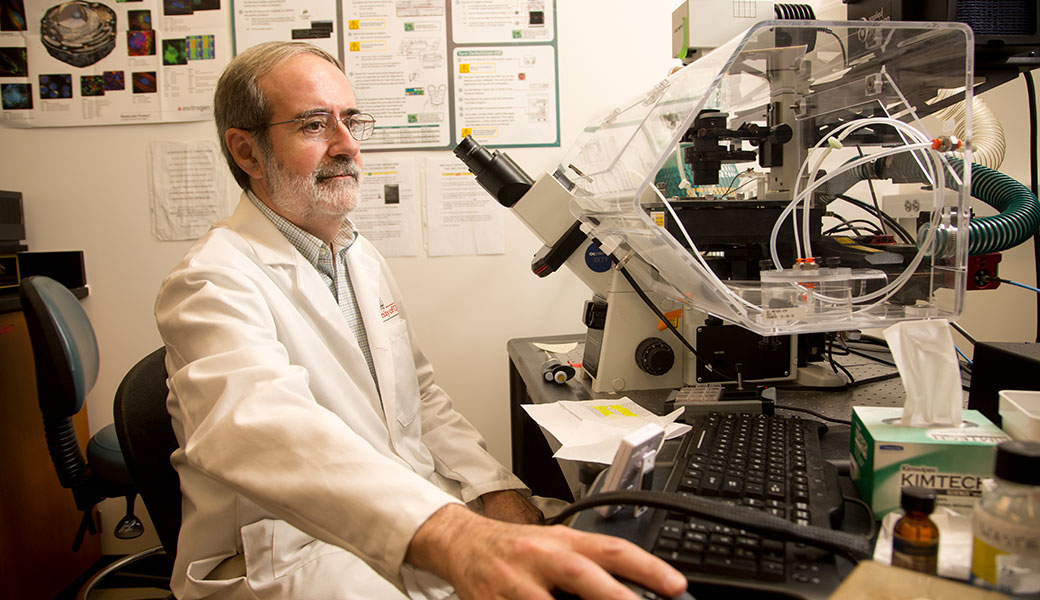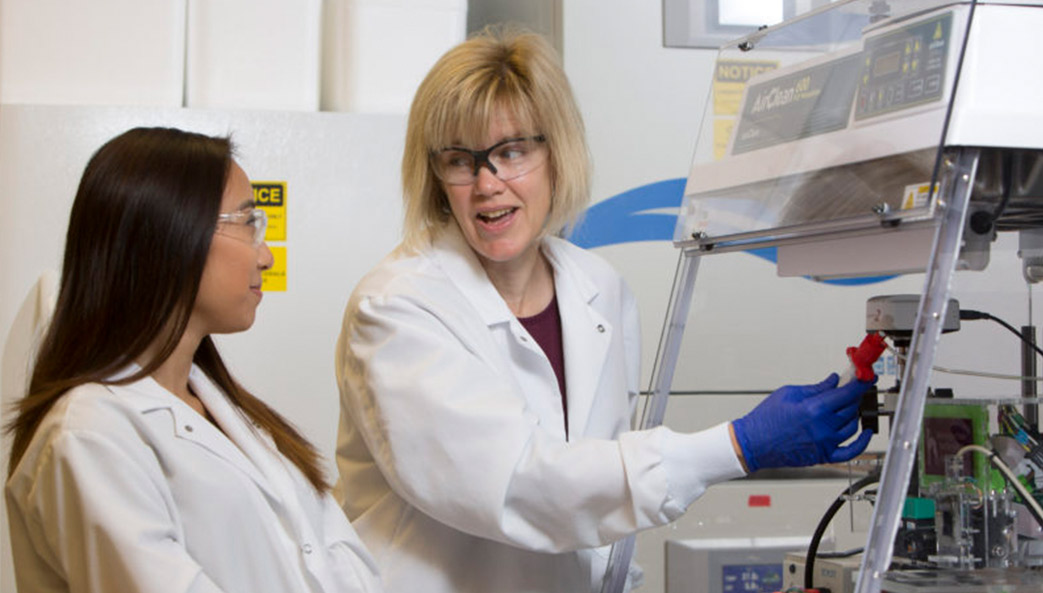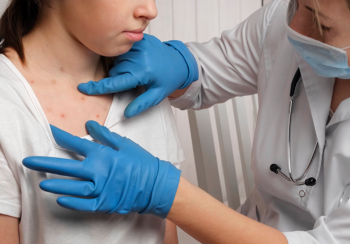University of Georgia researcher Roberto Docampo is part of a team developing tools to genetically manipulate marine protists, a microscopic single-cell organism that plays an important ecological role in marine ecosystems. For the first time, the researchers have developed protocols for transfection, or the introduction of foreign DNA, and gene expression in 13 species of protists.
Their results were published this month in Nature Methods. The work was funded by an $8 million grant from the Gordon and Betty Moore Foundation.
Marine protists are an untapped resource, and their study could reveal mechanisms and drug therapies to treat human and animal diseases. Protists aid in sequestering carbon dioxide, serve as a food source for many organisms (including humans), and cause the toxic red tides that have plagued Florida beaches in recent years. However, little is known about their cellular biology or evolutionary history, and no model organisms exist for this group.
Protists are a highly diverse collection of species, and the inability to genetically modify a large majority of them has been a major hurdle to their study. A few protists, such as some parasitic protists that have an impact on human or animal health, have protocols, but they are not highly representative of the broader kingdom.
Docampo and colleagues at UGA’s Center for Tropical and Emerging Global Diseases joined with 53 other lab groups to build on the tools already developed for eight other species. While they could not develop a universal protocol for genetic transfection for all protists due to their vast diversity, they were able to provide what the researchers are calling a synthetic “Transformation Roadmap.”
Docampo collaborated with Virginia Edgcomb and her lab at the Woods Hole Oceanographic Institute to develop genetic tools that would allow successful transfection of genes into Bodo saltans.
Bodo saltans is a unicellular organism found in marine and freshwater habitats. It belongs in the Discoba group which also includes the clinically significant parasitic protists Trypanosoma cruzi, Trypanosoma brucei, and Leishmania spp. Docampo and his team of researchers have been at the forefront of developing the genetic modification tool CRISPR-Cas9 for Trypanosoma cruzi, the causative agent of Chagas Disease.
“The development of tools to genetically modify [B. saltans] will be essential for the study of its biology and for the understanding of the evolution of the adaptions of trypanosomatids to parasitism,” said Docampo, Barbara and Sanford Orkin/GRA Eminent Scholar in Emerging Diseases and Cellular Biology and professor in the Franklin College of Arts and Sciences.
B. saltans, like the other protists in this study, will serve as a model organism for related protists that may be difficult to culture in the laboratory or in which transfection protocols are unsuccessful. This study is not only a step toward closing the knowledge gap in the biology and evolution of this diverse kingdom of organisms but will also aid in the advancement of protisan biotechnology.






